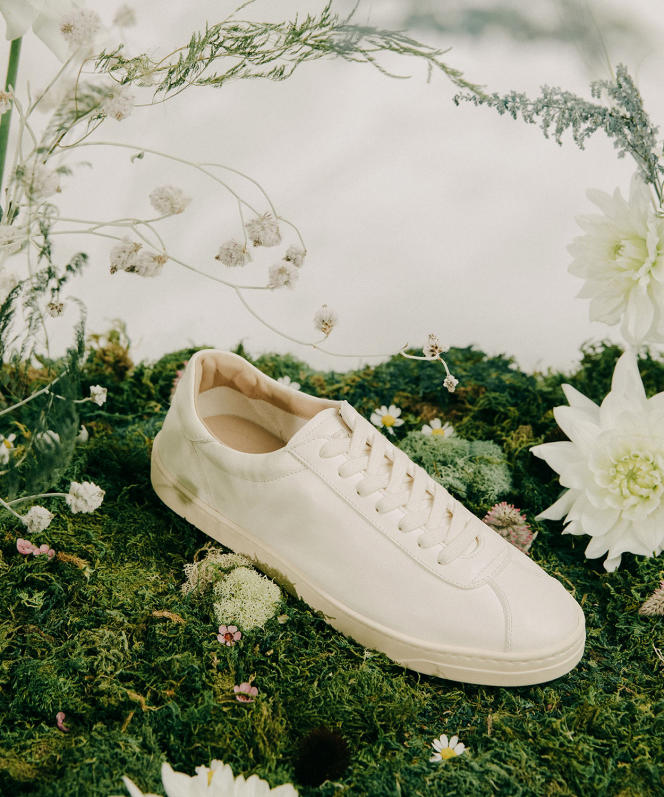After imitation leathers made from apple, pineapple or grape waste, intended to make plastic derivatives obsolete, the shoe industry is now entering the race for biodegradable models. “In 2022, the world manufactured 23.9 billion pairs of shoes, 88% of which were in China. Faced with this phenomenon that is neither reasonable nor sustainable, we must create a new generation of products,” advocates Paulo Alexandre Gonçalves, the communications director of Apiccaps, a Portuguese federation which represents five hundred brands in the country. Among them, Lusquinos, which is seeking to bring its Tríbio model to fruition, in biodegradable polymer, today at prototype stage.
Lusquinos is far from alone in this quest for a shoe that would be left to decompose once it reaches the end of its life. Orba, a New Zealand brand, is promoting its Ghost, a sneaker made in Indonesia, with an upper in linen, hemp and nettle, an insole in cork and sisal, and an outsole in natural rubber, rice and coconut oil. The whole thing “would decompose in forty to a thousand days” depending on humidity and temperature conditions, while the Canadian Native Shoes evokes “forty-five days” for its Plant sneaker, in cotton, linen, cork, eucalyptus pulp, kenaf (a variety of hemp) and olive oil.
Its rubbery sole, made of rubber milk, is French, produced by Reltex, a company from Isère whose specialty it has been since 1970. Johannes Quodt, the founder of Koio, also uses it in his Mello, a model manufactured in Abruzzo. , in Swiss leather tanned with zeolite (an aluminum salt which replaces chromium) with an insole made of recycled corn, wool and kenaf.
“Today, 99% of sneakers end up in landfills, underlines this Munich resident living in New York. You would think that recycling would be miraculous. However, materials can be recycled correctly provided they are well isolated, which is extremely dangerous for a shoe which forms a cocktail of complex elements to separate. When we know this, we understand that biodegradability is the most sustainable option. »
Cinnamon injections
However, this is not always absolute, most often reaching 97% or 99% depending on the options, in particular because of non-biodegradable foam padding. However, the argument is strong enough for customers to be receptive, despite prices oscillating between €250 and €400 per pair. Less expensive are the sandals designed by Balena, an Israeli start-up which invented a biodegradable polymer that can be molded and printed in 3D. In 2022, a few hundred pairs made from this material and dyed beige using cinnamon injections (scent included!) were sold at 180 shekels (€45).
You have 36.87% of this article left to read. The rest is reserved for subscribers.
